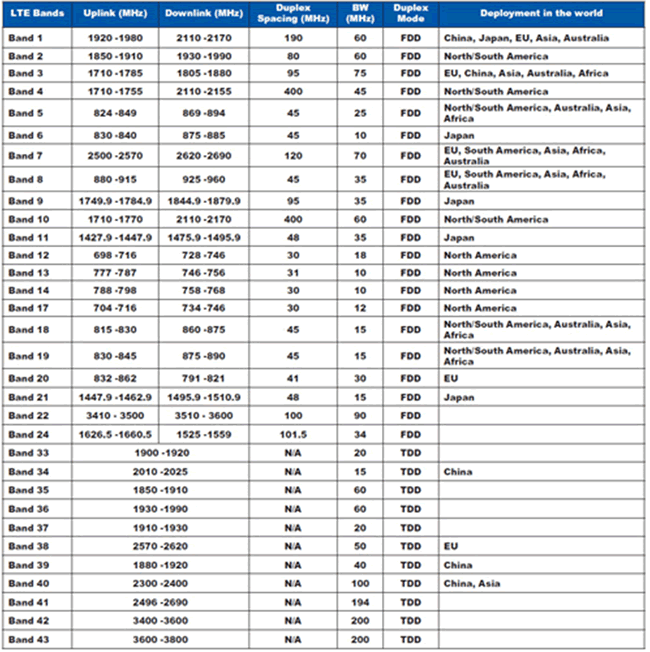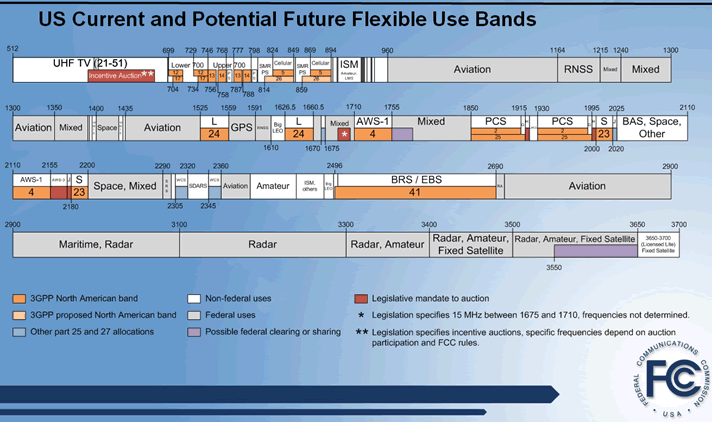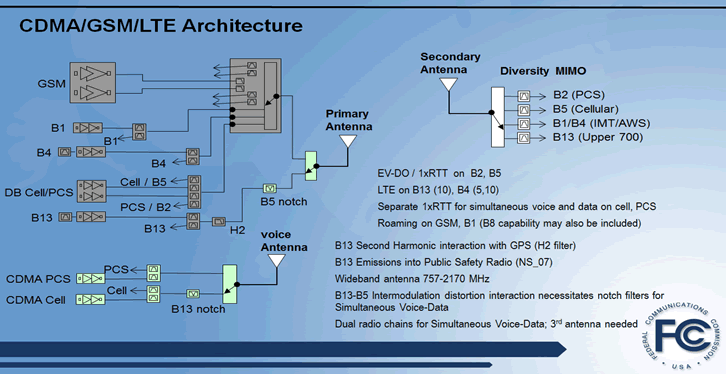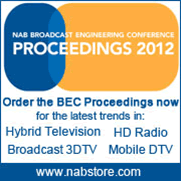
|
Future
Wireless Band Plans Anticipate Intensive Spectrum Use
On Monday, July 16, at 9:30 a.m. EDT, the FCC will hold a forum
on the Future of Wireless Band Plans which will explore the technological
issues affecting wireless band plan design. The event will lead
off with remarks from FCC Chairman Julius Genachowski and a keynote
presentation by Martin Cooper, the recognized "father of the
cell phone" and a frequent contributor in the ongoing discussions
about future spectrum needs for mobile broadband service. More on
Martin Cooper can be found at his website.
Broadcasters may be interested in some of his publications, including
this 2010 paper titled "The
Myth of Spectrum Scarcity." Following the keynote, there will be three panels with technical
experts on the following subjects: (1) Filter Technology and its Impact on Band Planning. The full forum agenda can be found here.
The workshop will be held in the Commission Meeting Room at the
FCC's headquarters in Washington, D.C. It is free and open to the
public, with seating available on a first-come, first-served basis.
The forum will also be broadcast live over the Internet and can
be viewed at http://www.fcc.gov/live.
Questions from the Internet audience can be submitted via email
to livequestions@fcc.gov.
For broadcasters, the prospects of LTE spectrum band planning encompass
at least two areas of interest: Meet your new neighbors: there are multiple band
plans for LTE operations and broadcast services will live adjacent
to some of them. To illustrate these points, below are the band plans currently
defined for LTE around the world. Most are frequency division duplex
(FDD) paired frequencies but there are several sets of time division
duplex (TDD) bands as well: At the recent FCC
Technological Advisory Council (TAC) meeting held on June 27,
the Working Group on Multi-band Devices reinforced the spread-out
nature of the spectrum bands being used. In the slide below from
their presentation, the numbers in the orange bands refer to the
LTE bands. Frequencies subject to incentive auctions, slated for
part of the UHF television band, are shown in red. Also presented by the
TAC Working Group were some block diagrams of typical handheld receivers
showing the tuner components needed. For example, the receiver architecture
below shows the arrangement of needed filters, amplifiers, switches
and other components to enable a device with CDMA, GSM and LTE band
access. The devices' complexity profile is of course even more complicated
when additional radios for Bluetooth, Wi-Fi, NFC and broadcast radio
are considered. The TAC Working Group
had two general recommendations for the FCC: While it was recognized
that software defined radio technology and adaptive front end
tuner components make good theoretical solutions for the complexity
problem, experts warn that these technologies may not be practical
for some number of years. Those that tune in to to Monday FCC
forum on the Future of Wireless Band Plans are likely to hear
a good discussion on both sides of the issue. All
TV Stations Must Upload New Public File Documents Starting August
2 On Tuesday, July 17, 2012 at 10 a.m. EDT the Federal Communications
Commission (FCC) will host a public information session about
the upcoming online public file requirements and will demonstrate
the database it has developed to host the online public inspection
file documents. The event will be streamed live at www.fcc.gov/live.
This session will also be archived on the Commission's website.
Television members are strongly encouraged to watch the webcast
to learn more about the design and content of the online file
and how to upload documents to the database. Click here
to read the Public Notice. Although NAB has asked to stay enforcement of the political files
requirement pending court review, there has been no ruling on
that request yet. Stations must assume the ruling will go into
effect. NAB will provide updated information on the litigation
as it becomes available. |
|
|






